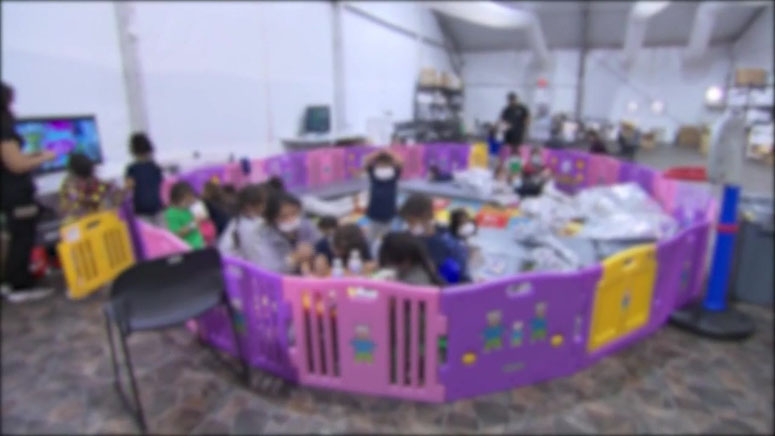HARTFORD, Conn. (AP) — Connecticut officials are looking at places in the state to house unaccompanied migrant children who have been arriving at the U.S.-Mexico border in record numbers, including a now-shuttered juvenile detention center that drew criticism over its prison-like conditions, Gov. Ned Lamont said Thursday.
The Democratic governor said Vice President Kamala Harris asked him during a visit last month to Connecticut if the state could take some of the children from the border.
“We have thousands of kids who are lost and alone down on the Rio Grande border,” Lamont said at a news conference. “Vice President Harris approached me and said, ‘Can Connecticut help out?’ And I said we’re going to try to do what we can.”
Lamont said officials are planning to make a recommendation to federal authorities on possible sites within the next several days. A Connecticut organization is already contracted to help find housing for some children who cross the border alone and are sent to the state.
Lamont and Vannessa Dorantes, commissioner of the state Department of Children and Families, did not say at the news conference how many more children could possibly come to Connecticut from the border and did not disclose other locations under consideration to house them.
The governor said he and other officials recently toured the former Connecticut Juvenile Training School in Middletown to “see if we can find a way that we can take care of these kids in a humane, caring way and also in a secure way.”
Federal authorities said Thursday that the U.S. government picked up nearly 19,000 children traveling alone across the Mexican border in March, the largest monthly number ever recorded. The large number is a major test for President Joe Biden as he reverses many of his predecessor’s hardline immigration tactics.
Consideration of the training school to house migrant children drew immediate concerns from immigrant and civil rights advocates.
“Children do not belong in cages, and the fact that the state is considering placing migrant children in a former youth prison is disturbing,” David McGuire, executive director of the American Civil Liberties Union, said in a statement.
The former Connecticut Juvenile Training School training school opened in 2001 with a capacity to hold more than 200 boys and young men, and there were repeated findings of improper used of restraints and isolation as well as frequent calls for its closure.
It closed in 2018 amid declining juvenile and young adult arrests, lower crime rates and new reforms and programs.
When it closed, then-Gov. Dannel Malloy called the facility “an ill-advised and costly relic of the Rowland era,” referring to former Republican Gov. John Rowland. Malloy said the $57 million “prison-like facility” for boys and teenagers made “rehabilitation, healing and growth more challenging.”
Dorantes said state officials are well aware of the training school’s history.
“We understand that the things that happened there do not comport with the standards of care we have today for Connecticut,” she said. “What we’ve been doing is trying to scope out places in Connecticut that we may be able to reimagine the best and humane way to be able to help this humanitarian crisis.”
For the past five years, the Connecticut Institute for Refugees and Immigrants has been the only group in the state with a federal contract to help migrant children in federal custody who were brought to Connecticut. The institute helps up to 75 children a year find homes with relatives and other sponsors, and provides legal services to those in a shelter in the state overseen by the federal government, among a variety of other services.
For safety reasons, the institute would not specify where the federally contracted shelter was or how many children are housed there. The organization said it expects to serve more children because of the recent increase in border crossings, but had not been contacted by state officials about using the former training school.
Ashley Gaudiano, a spokesperson for the institute, said Thursday that she said she did not want to speculate on whether the training school would be appropriate without seeing what the state’s plans are.
“We don’t want children housed in buildings that are designed like prisons, but … we haven’t been to that facility. The first and only priority has to be the safety and the well-being of the children and ensuring that they’re in a facility that meets appropriate standards is critical.”
There are two shelters for unaccompanied migrant children in Connecticut, in Groton and Washington, that have contracts with the federal Department of Health and Human Services. It wasn’t immediately clear how many children are in the shelters.
(Copyright (c) 2024 The Associated Press. All Rights Reserved. This material may not be published, broadcast, rewritten, or redistributed.)

